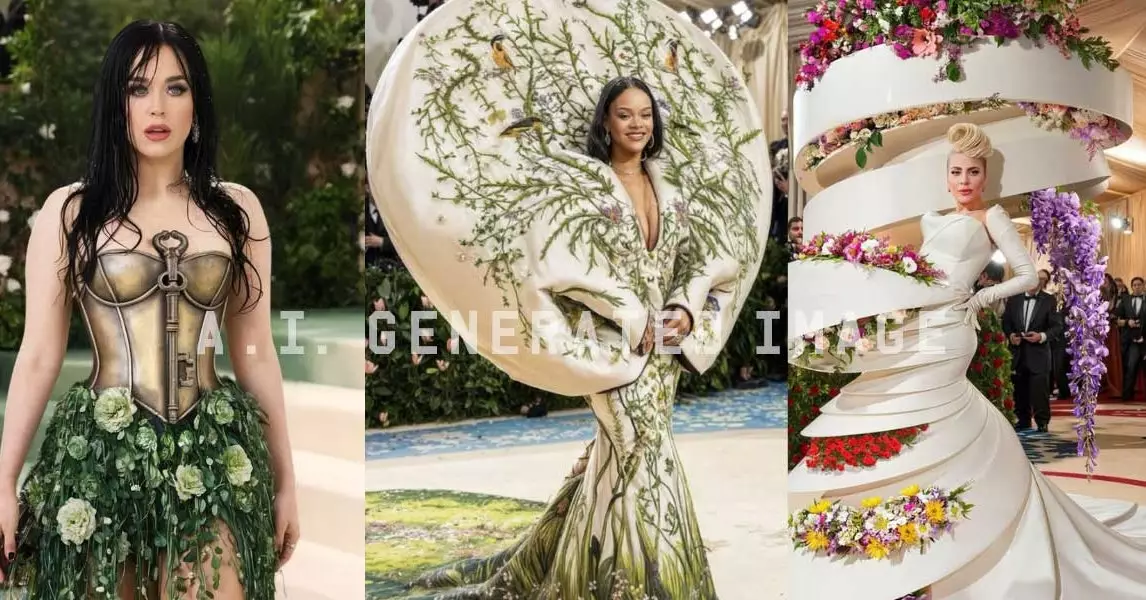The Met Gala, known for its extravagant fashion and celebrity attendees, took a surprising turn this year with the rise of generative AI deepfakes. These deepfakes, created using artificial intelligence technology, have garnered significant attention by showcasing stunning images of celebrities such as Katy Perry and Rihanna in elaborate outfits that never actually graced the Met Gala red carpet.
One of the most striking examples of these AI-generated deepfakes is a post featuring Katy Perry in a mesmerizing dress adorned with three-dimensional floral appliqués that seamlessly transition into lifelike moss. The image quickly went viral, amassing millions of views, despite the clear disclaimer that it was digitally created. Similarly, other images surfaced showing Rihanna, Dua Lipa, and Lady Gaga in intricate ensembles, despite the fact that they did not attend the event at all.
These deepfake images spread rapidly across social media platforms, captivating audiences and even catching the attention of the celebrities themselves. Katy Perry, in particular, liked the photos of herself in AI-generated outfits, further blurring the lines between reality and digital fabrication. This phenomenon highlights the power of generative artificial intelligence in creating and disseminating hyper-realistic images on a massive scale.
The ease with which these deepfake images were produced and shared underscores the accessibility of AI technology. With the ability to generate convincing images of celebrities in various scenarios, deepfakes have the potential to influence public perception and spark widespread interest. The Met Gala served as a perfect canvas for showcasing the capabilities of generative AI, allowing fans to envision their favorite stars in imaginative and outlandish outfits.
The emergence of generative AI deepfakes has added a new dimension to the Met Gala and other high-profile events. By blurring the boundaries between reality and digital manipulation, these images challenge our perception of authenticity and highlight the evolving landscape of technology in the realm of entertainment and social media. As AI continues to advance, it is essential to critically evaluate the impact of deepfakes on our society and the implications for the future of media and visual storytelling.


Leave a Reply